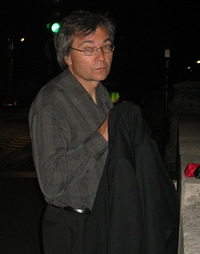 Thomas Csordas — Invisible Illnesses and Embodiment as a Methodological Field
As a locus of research in anthropology and the human sciences, embodiment can be understood as an indeterminate methodological field defined by perceptual experience and mode of presence and engagement in the world. In this paper I outline three dimensions of this field, including a system of elementary structures of agency in the body-world relation, a fundamental axis of sexual difference between male and female and the variations along that axis, and a set of components of corporeality which allows us to identify and isolate “strategic research materials” for empirical study. I then flesh in this outline by examining three unseen or invisible illnesses — phantom limb, chronic fatigue, and chemical sensitivity — each of which occupies a distinctive position within embodiment as a methodological field.
 Kathryn Geurts — Disability Sensibilities in Ghana: Feeling Invisible, Feeling Empowered
Invisibility is palpable for citizens of Accra living with disability. You are alternately passed by, ignored, or stared at so intensely that you experience your self as an object. This paper will draw on interviews and participant observation with Ghanaian activists to explore how the unseen (here: bodily, emotional feeling) operates as a vector for cultivating disability sensibilities that trouble and transcend distinctions consistently made between rich/poor, outsider/insider, able-bodied/disabled, and the individual good compared to collective well-being.
Kathryn Linn Geurts is Associate Professor of Anthropology at Hamline University and in 2009 was awarded a John Simon Guggenheim Fellowship. She is the author of Culture and the Senses: Bodily Ways of Knowing in an African Community.
This session of the Sensing the Unseen seminar is complete. A podcast of this session can be found here, or download MP3 files of this session from the links below:

|